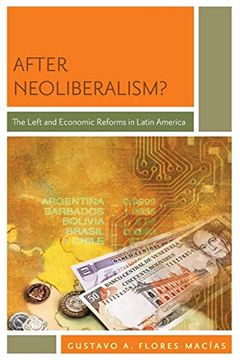Synopsis "After Neoliberalism? The Left and Economic Reforms in Latin America (in English)"
The political trajectory of Latin America in the last decade has been remarkable. The left, which had been given up for dead across the region, swept into power in numerous countries: Ecuador, Brazil, Venezuela, Nicaragua, Bolivia, and even Chile. Moreover, the Mexican left, which lost an extremely close (and disputed) election a couple of years ago, may yet come to power in 2012. Once these left governments took the reins of power, though, they acted very differently. Some have been truly radical, while others have been moderate. Gustavo Flores-Macías' After Neoliberalism? offers the first systemic explanation of why left-wing governments across the region have acted in the way that they have. His theory hinges on party systems. Deeply institutionalized, stable party systems have forestalled radical change regardless of the governing party's philosophy, but states with weakly institutionalized party systems have opened the door for more radical reform. Evo Morales and Hugo Chavez, then, are not simply more radical than Lula and Chile's Michele Bachelet (who left office in March 2010). Rather, weak party systems allowed them to adopt more radical policies. Flores-Macías is careful to add that weak party systems also allow for rightwing radicals to enact policies more easily, but at this historical conjuncture, the left has the upper hand. Utilizing a rich base of empirical evidence drawn from eleven countries, After Neoliberalism? will reshape our understanding of not simply why the left has had such a far-reaching triumph, but how it actually governs.

